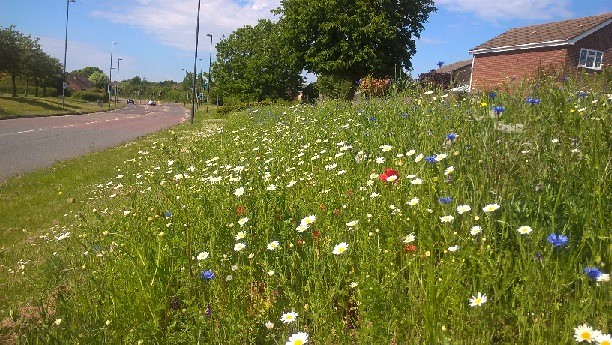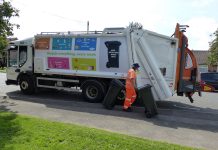South Gloucestershire Council has launched a new trial looking at how grass cuttings can be used to generate energy and reduce the authority’s carbon footprint.
The trial is part of ADEPT Live Labs 2: Decarbonising Local Roads in the UK, which is a three-year, UK-wide £30 million programme funded by the Department for Transport that aims to decarbonise the local highway network.
The council will use new machinery to cut and collect grass from highway verges and other green spaces. The grass will be mixed with the council’s food waste and taken to an energy-from-waste plant where the mixture will be subject to a process called anaerobic digestion.
The innovation project, called Greenprint, will investigate potential new ways the cuttings could be used, including producing biogas, biomethane fuel for vehicles and an additive for asphalt road surfacing material called biochar.
The project is being carried out jointly with West Sussex County Council, who will be trialling similar technologies. In response to the Climate and Nature Emergency, both councils have set commitments to achieve net zero carbon emissions by 2030.
It is hoped the Greenprint project will reduce the council’s carbon footprint, encourage wildflowers, help insects to thrive and allow the soil to store more carbon.
Reducing the frequency of grass cuts is a key element of the trial as this encourages greater biodiversity and increases the levels of carbon stored in the soil. The new arrangements are to be piloted in selected areas of Yate with plans to roll it out to other parts of South Gloucestershire from next year.
South Gloucestershire Council has worked closely with Yate Town Council to identify the areas of grass to include.
The trial will last three years. This will be followed by a further five years of monitoring of the environmental benefits, impact, and costs. This information, as well as feedback from the community, will be used to decide whether to make the changes permanent. No date has been set for this decision.
Councillor Louise Harris, cabinet member with responsibility for the climate and nature emergency at South Gloucestershire Council, said: “This is an exciting innovative project which is considering new ways of working to help with our climate and nature emergency goals.
“Our green spaces are an important local amenity, but they also play a key part in supporting the nature recovery and how we manage a changing climate.
“For this trial we will be changing the way we manage our grass areas, along highways and in green spaces, to see if we can make a difference supporting ecology and biodiversity.
“Over the next three years South Gloucestershire will be a test bed for finding a way to reduce our carbon footprint when it comes to managing our highways, which if successful could eventually be replicated by local authorities across the country.”
Giles Perkins, Live Labs 2 Programme Director said: “The Greenprint Live Lab highlights the role an underappreciated part of the local highways’ asset base could contribute to reducing carbon emissions. This first step is an exciting one in considering how we approach local roads as a whole system from a decarbonisation point of view.”
Greenprint, was awarded £4 million by ADEPT Live Labs 2, to examine how changing the way local authority grass areas are managed can provide a source of materials and fuels to decarbonise highway operations, as well as supporting other benefits such as increasing biodiversity and resilience to the changing climate.
People wanting to know more can go online to www.southglos.gov.uk/greenprint
People can share their feedback on the trial via email climate.emergency@southglos.gov.uk









